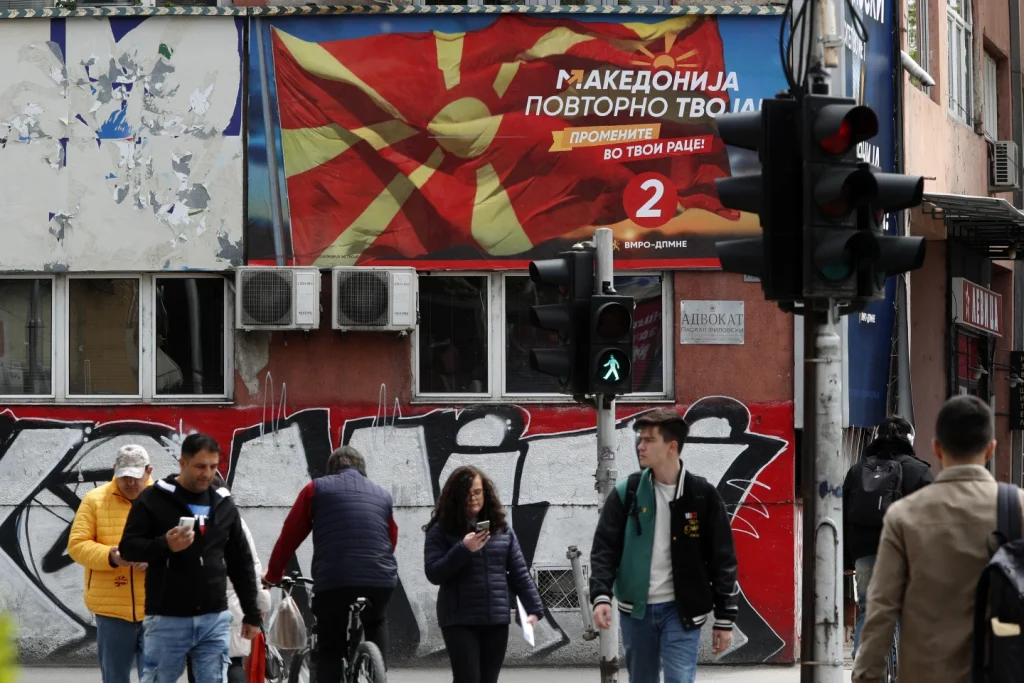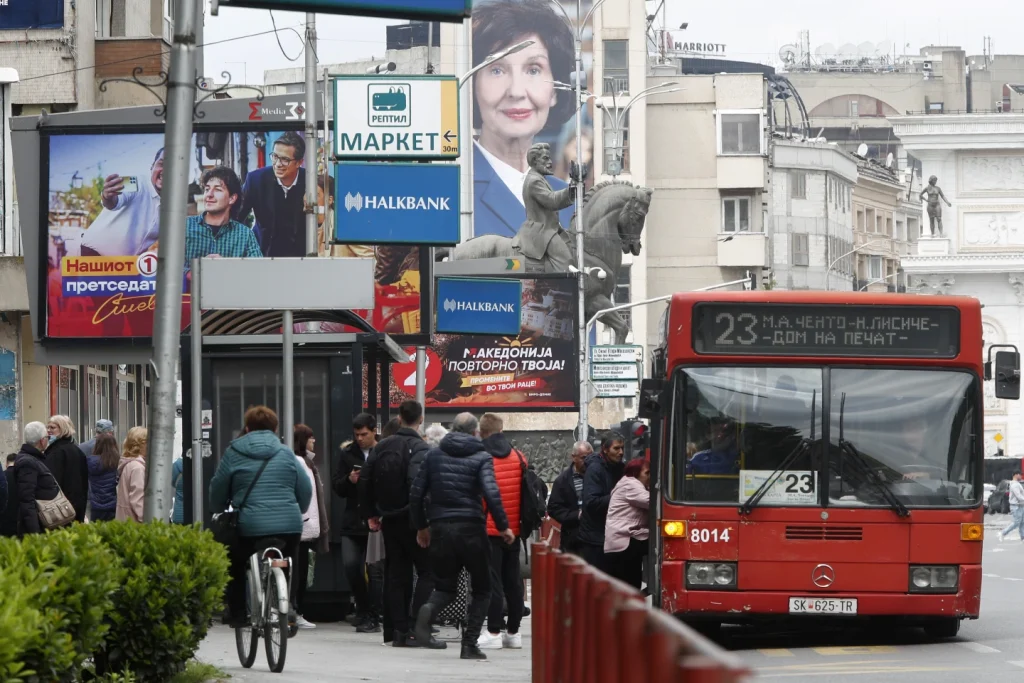Presidential elections in North Macedonia, a small Balkan country situated in the heart of the European continent, have garnered significant attention and anticipation in recent times.
The upcoming elections, scheduled to take place on Wednesday, are poised to shape the future trajectory of the nation, which has long aspired to integrate itself into the European Union, yet has faced numerous challenges and setbacks in its pursuit of this goal over the past two decades.
As the political landscape in North Macedonia unfolds, it becomes evident that the country’s aspirations for EU membership have remained largely unfulfilled, despite sustained efforts and commitments.
The upcoming presidential elections, alongside the concurrent parliamentary elections slated for May 8, hold the promise of ushering in a new era of governance and policy direction that could potentially steer the nation towards a path of greater alignment with European values and standards.
Against this backdrop, the field of presidential candidates vying for the esteemed position has emerged, with seven individuals stepping forward to contest the largely ceremonial role.
The electoral discourse has been dominated by key thematic priorities such as EU accession, upholding the rule of law, combating corruption, and addressing socioeconomic disparities within the country.
These pressing issues have resonated with the electorate, underscoring the significance of the upcoming elections in shaping the national agenda and priorities.
The latest opinion polls conducted by the Center for Political Research and Communications have shed light on the electoral dynamics, indicating a competitive race between incumbent President Stevo Pendarovski and opposition-backed candidate Gordana Siljanovska Davkova.
The margin between the two leading contenders, with Davkova holding a 3.6 percentage-point lead over Pendarovski, underscores the closely contested nature of the electoral contest and the potential for a runoff election in the absence of a candidate securing an outright majority.
President Pendarovski, aged 61, seeks re-election for a second consecutive term, enjoying the backing of the ruling social democrats in the country.
His candidacy symbolizes continuity and stability in governance, with a focus on advancing the country’s EU integration agenda and fostering inclusive development policies.
In contrast, Gordana Siljanovska Davkova represents the opposition forces, advocating for a fresh vision and approach to governance that prioritizes transparency, accountability, and anti-corruption measures.
As North Macedonia stands at a critical juncture in its political evolution, the outcome of the presidential elections holds profound implications for the country’s future trajectory and its aspirations for closer integration with the European Union.
The electorate’s decision on polling day will not only determine the occupant of the presidential office but also set the tone for broader policy directions and reforms in the coming years.
In conclusion, the presidential elections in North Macedonia represent a pivotal moment in the nation’s democratic journey, offering an opportunity for citizens to shape the course of their country’s future.
The electoral process underscores the vibrancy of democratic participation and the exercise of civic rights, as the nation navigates complex challenges and opportunities on its path towards European integration.
The outcome of the elections will reverberate across the region, signaling North Macedonia’s commitment to democratic values, good governance, and sustainable development in the years ahead.
The upcoming presidential election in North Macedonia has garnered significant attention both domestically and internationally due to the intricate political dynamics at play.
With a diverse range of candidates representing various political ideologies and ethnic backgrounds, the election serves as a crucial juncture in the country’s journey towards European Union (EU) membership.
This essay delves into the key issues, candidates, and implications surrounding the election, shedding light on the complexities that define North Macedonia’s political landscape.
One of the central points of contention in the election campaign has been the disagreement between the main opposition VMRO-DPMNE coalition, led by Siljanovska Davkova, and the government regarding Bulgaria’s demand for North Macedonia to recognize a Bulgarian ethnic minority in its constitution.
This demand, linked to Bulgaria’s threat to block North Macedonia’s EU membership bid, underscores the intricate diplomatic challenges facing the country.
The differing approaches of the candidates towards addressing this issue reflect broader debates on national identity, minority rights, and EU accession criteria.
North Macedonia’s aspiration to join the EU has been a longstanding goal, with the country being a candidate since 2005.
However, the formal commencement of membership talks in 2022 marked a significant milestone in the EU integration process.
The presidential election comes at a critical juncture as the country navigates the complexities of aligning with EU standards, addressing internal reforms, and managing external pressures from neighboring countries like Bulgaria.
The outcome of the election is likely to influence the trajectory of North Macedonia’s EU accession process and shape its future relations with the EU and other regional actors.
The presidential race features a diverse array of candidates, reflecting North Macedonia’s multicultural and multiethnic society.

Apart from Siljanovska Davkova, other notable contenders include law professor Biljana Vankovska from the leftist party Levica, Foreign Minister Bujar Osmani representing the ethnic Albanian minority, and Arben Taravari from an opposition ethnic Albanian party.
The presence of candidates from different ethnic backgrounds underscores the importance of inclusive representation and political participation in a country marked by ethnic diversity.
The electoral process in North Macedonia is governed by strict regulations aimed at ensuring transparency and fairness. In the event that no candidate secures an outright victory, a second round of voting will be held between the top two contenders, with a minimum turnout requirement of 40% for a valid result.
The presence of 320 international observers underscores the international scrutiny and importance attached to the election’s integrity. The absence of exit polls and the anticipation of early result announcements highlight the significance of a smooth and credible electoral process.
In conclusion, the presidential election in North Macedonia encapsulates a myriad of political, diplomatic, and societal complexities that define the country’s path towards EU membership and democratic consolidation.
The contestation over Bulgaria’s demands, the diverse candidate pool, and the electoral procedures underscore the multifaceted nature of North Macedonia’s political landscape.
As voters head to the polls, the outcome of the election is poised to shape the country’s future trajectory, regional relations, and commitment to democratic values.
The eyes of the international community remain fixed on North Macedonia, as it navigates the challenges and opportunities that lie ahead in its democratic journey.
